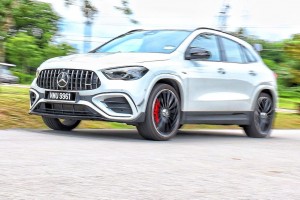Nissan-Honda merger would be far from cure-all
By REUTERS | 19 December 2024
MELBOURNE: If only M&A solved everything. Japan's Nissan Motor and Honda Motor certainly need help.
The country's second- and third-largest automakers are in talks to set up a holding company, Reuters reported on Wednesday, citing a source.
That may yet lead to a full merger and possibly include smaller rival Mitsubishi Motors, according to the Nikkei. Nissan is Mitsubishi's largest shareholder with a 24% stake.
Cost cuts would bolster margins at the trio, whose combined market value at Tuesday's close was US$50 billion.
But as Stellantis's woes show, tie-ups alone don't create great manufacturers.
Nissan, whose shares surged 24% following the reports, would benefit the most.
Last month, CEO Makoto Uchida unveiled an emergency overhaul that involved cutting 9,000 jobs and 20% of manufacturing capacity. Even so, its operating margin in the year to the end of March 2026 is expected to be just 0.4%, per forecasts gathered by Visible Alpha.
Honda's automotive unit is on track to deliver a better, but hardly decent, 4.6% - roughly half of the US$227 billion Toyota Motor's.
Fully meshing the two together could improve the margin to 7% if they managed to slash expenses equivalent to 4% of revenue - roughly the target Renault, Nissan and Mitsubishi set for their alliance in 2017.
Combining their finance units and swallowing Mitsubishi would bring even more savings.
The prospect of more revenue hitting the bottom line at the combined entity would be even more appealing if US President-elect Donald Trump follows through on his threat to impose tariffs on imports.
But M&A can only work to a point.
Stellantis, for example, is the amalgam of a number of different businesses, starting with Peugeot's 2017 acquisition of Opel, General Motors' European business.
Then-CEO Carlos Tavares's success, turning that around paved the way to unveil a merger with Fiat Chrysler two years later.
The company today is currently grappling with falling sales and shrinking margins due largely to overpriced, uninspiring cars in the United States.
Boardroom disagreements over how to fix the problem prompted Tavares to quit this month.
A well-executed merger could buy Nissan and Honda time not just to slash expenses but to bolster their subpar portfolio, not least of electric and hybrid cars.
Stellantis shows that if executives don't focus on producing vehicles customers want to buy at prices that keep shareholders happy, any union is likely to careen off the road again.
Tags
Autos Nissan
Reviews

Porsche Macan EV: Re-energised exhilaration

All-electric Leapmotor C10 SUV ticks all the right boxes

New Kia Sportage: Versatile and stylish

6.6
Triumph Scrambler 1200 X: A good balancing act

8.3
Mercedes-AMG GLA 45 S 4Matic+: Poking the pocket rocket

8.0
Moda Sporter-S 250: A new player in town

Porsche Taycan E-xperience drive: Kuala Lumpur - Kuantan

Mercedes-Benz E 350 e PHEV: Refined elegance, timeless prest...
Videos

StarCarSifu Editors' Choice Awards 2024: Top winners

The Snowball – Lamborghini’s Heartwarming Christmas Story of...

EVOGO battery swapping solution showcased at IAA Mobility 20...
